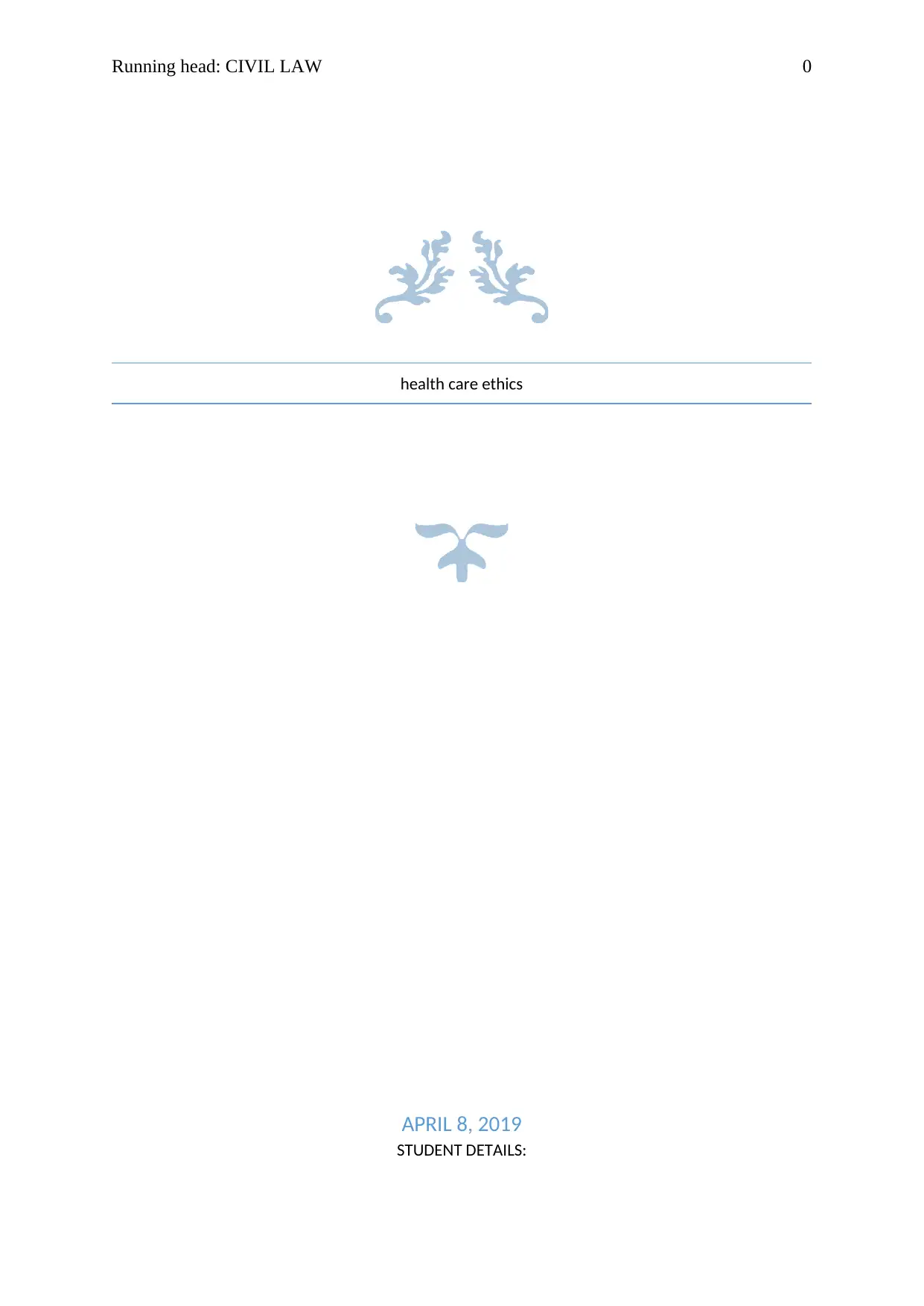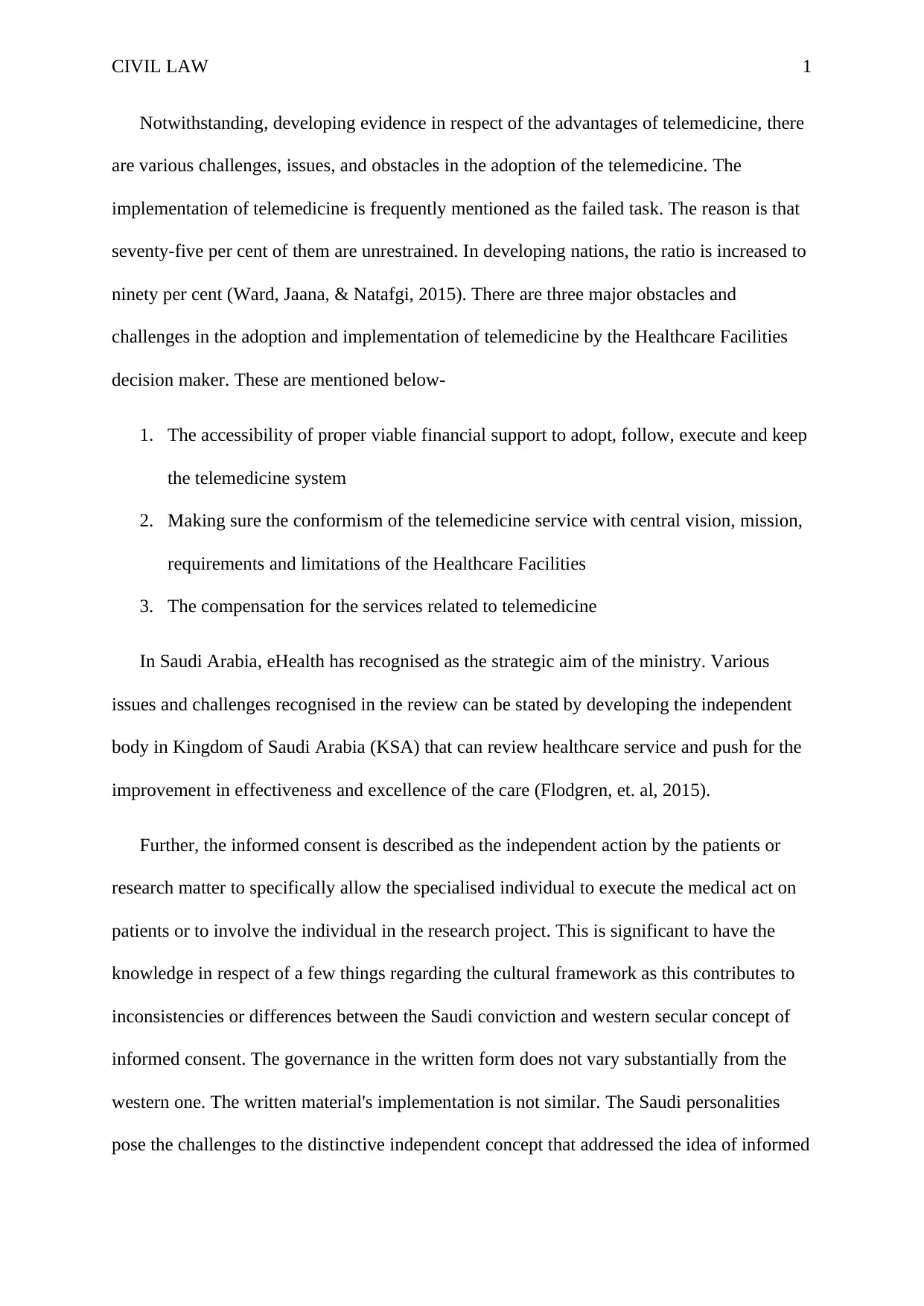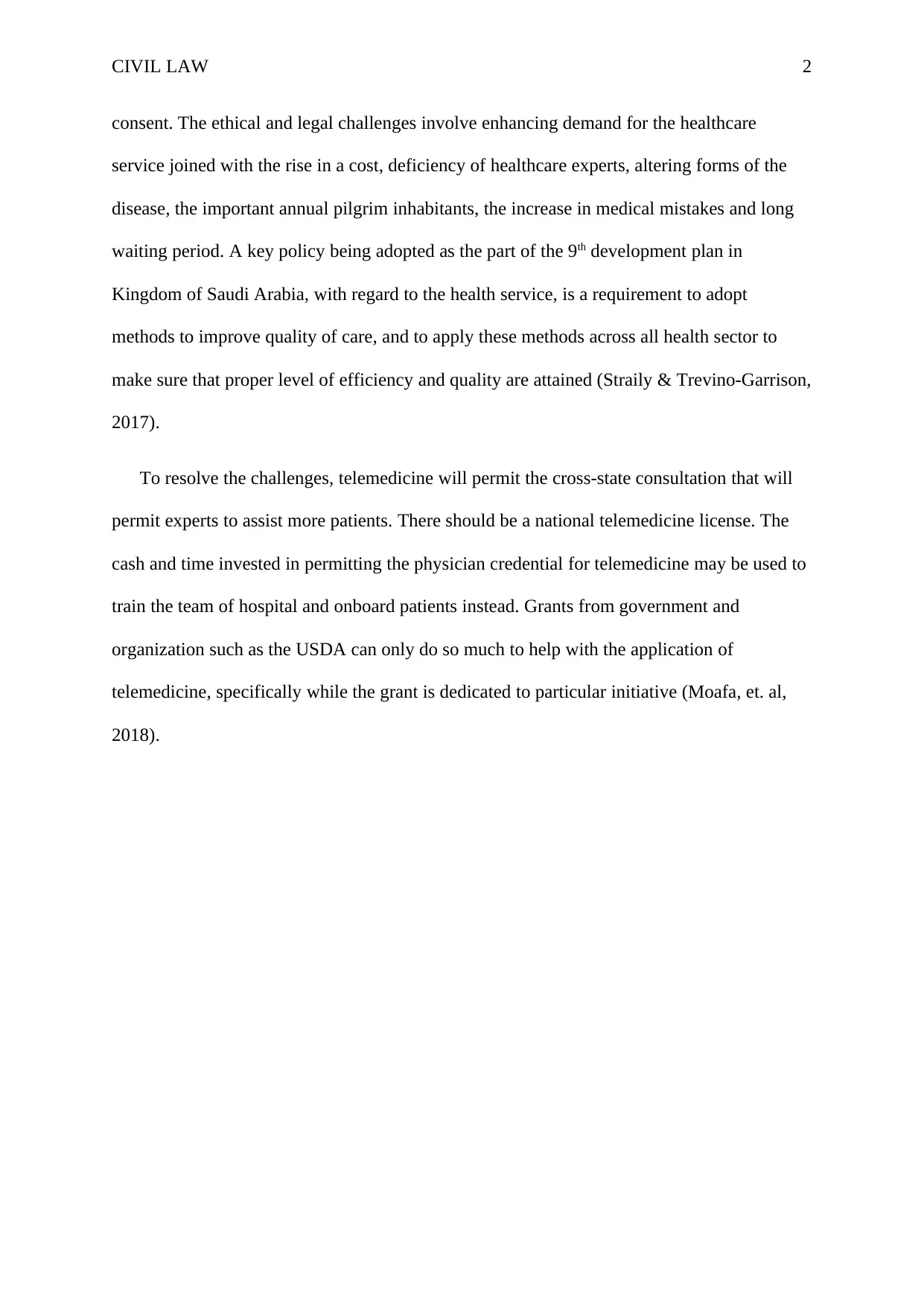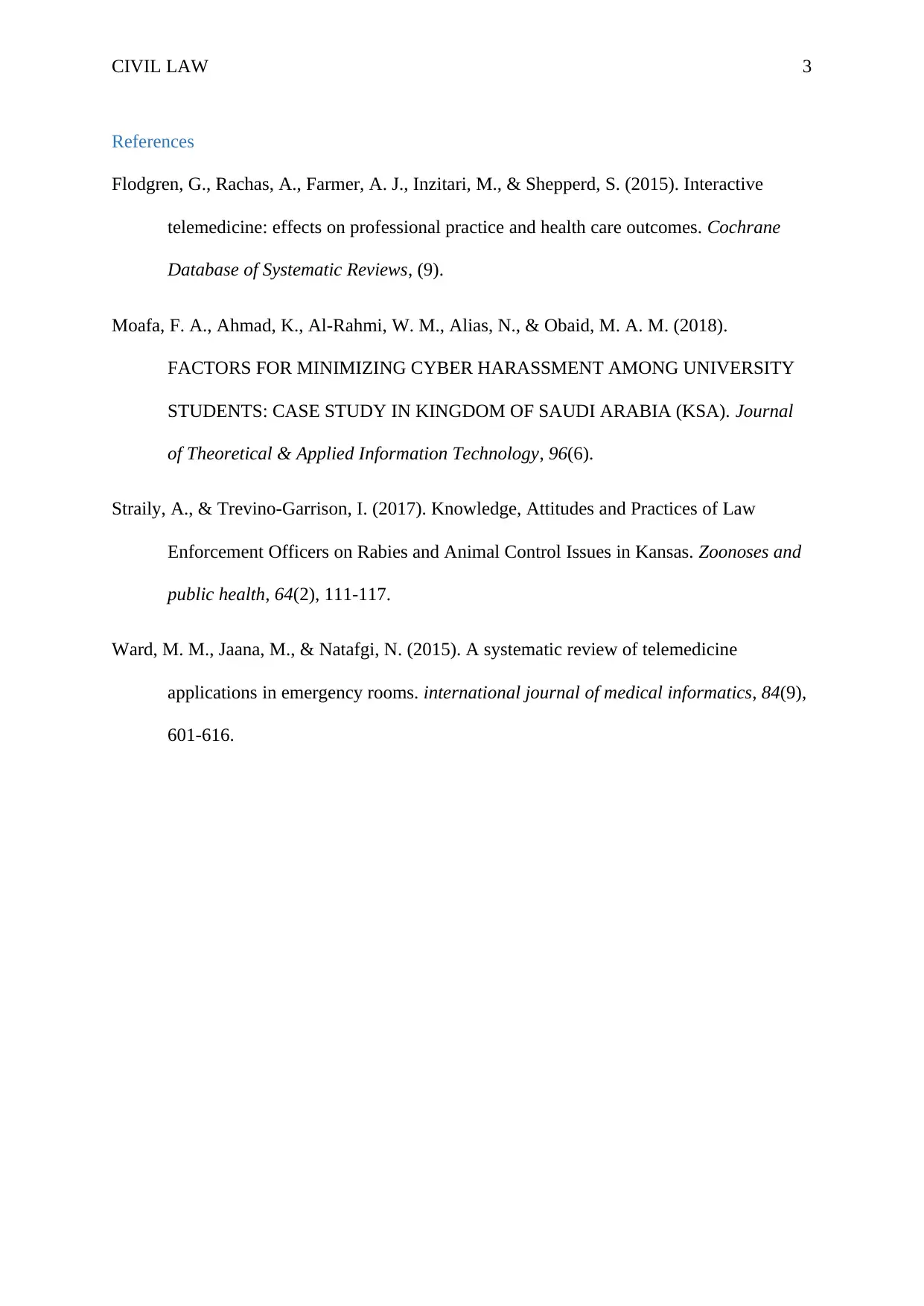Telemedicine Adoption: Challenges, Laws, and Ethics in KSA
VerifiedAdded on 2023/01/18
|4
|763
|60
Discussion Board Post
AI Summary
This discussion post examines the challenges and barriers to the adoption of telemedicine in Saudi Arabia, focusing on the strategic importance of eHealth initiatives. It highlights key obstacles such as financial support, conformity with healthcare facility requirements, and service compensation. The paper also explores the role of informed consent within the cultural context of Saudi Arabia, addressing ethical and legal challenges related to rising healthcare demands, expert shortages, and the influx of pilgrims. The author proposes solutions, including a national telemedicine license and cross-state consultations, to improve healthcare access and quality. References include studies on telemedicine applications, cyber harassment, and law enforcement practices related to public health issues.
1 out of 4







![[object Object]](/_next/static/media/star-bottom.7253800d.svg)